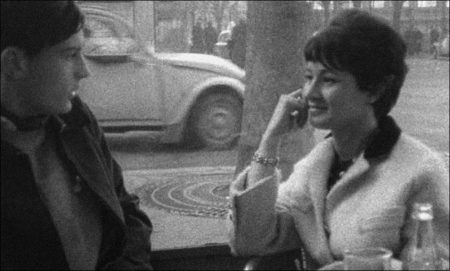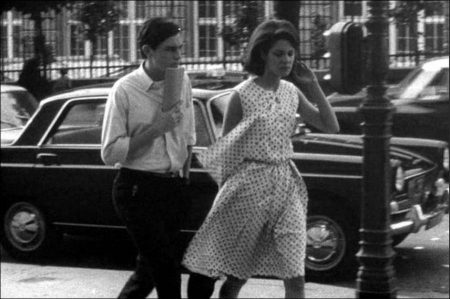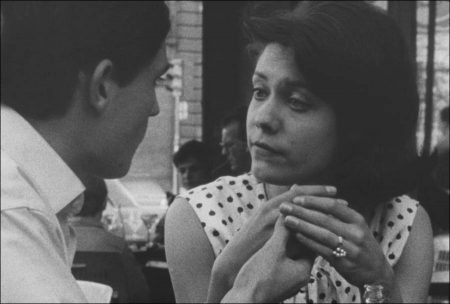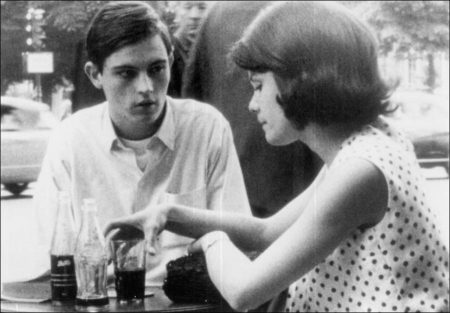Suzanne’s Career movie storyline. Bertrand is an 18-year-old student of pharmacology. He is shy, innocent and kind-hearted, the opposite of his best friend, Guillaume, who is a crafty lady-killer. At a café they meet a girl named Suzanne, who quickly yields to Guillaume’s flirtation. Guillaume invites her to a party in his house, and late in the evening he involves Bertrand in his scheme to get Suzanne into his bed. Guillaume is frightened of getting too bound up with a girl.
To avoid this he alternates between seduction and repulsion towards Suzanne. Bertrand feels a kind of shameful pity for Suzanne, but when she turns back to Guillaume again and again, her lack of dignity evokes Bertrand’s scorn. Bertrand is himself interested in a girl named Sophie. He tries to approach her, but his shyness is paralyzing.
Guillaume says that girls like to be forced, but that is not in accordance with Bertrand’s mentality. Guillaume involves Bertrand in a new scheme concerning Suzanne. They tell her that they are broke, and for some weeks they cheat her to pay all their amusements. It ends up in Suzanne being broke and even losing her job. Some months later she is married. Bertrand finds out that he is losing Sophie, while Suzanne is happy. He thinks that she is beating them all to the finish line.
Suzanne’s Career is a 1963 film by Éric Rohmer. The French title is La Carrière de Suzanne. It is the second movie in the series of the Six Moral Tales. A flirty Guillaume seduces a woman named Suzanne, which becomes problematic for his friendship with the shy Bertrand, especially when Guillaume’s and Suzanne’s relationship becomes strained.
Film Review for Suzanne’s Career
The second of Eric Rohmer’s six moral tales – another short, but this one 53 minutes long, instead of the 23 minutes of The Bakery Girl of Monceau is ever so slightly different from the others in this series. Rohmer has described the films as Boy wants one girl, spends most of the movie with another girl, and then returns to the first girl – which is a pretty good summary of all the films, with the exception of Suzanne’s Career, which is ever so slightly different.
Here, the man at the center of the film is Bertrand (Phillippe), a student whose best friend is Guillaume (Christian Charriere). Guillaume has an easy way with women – he is able to seduce them rather easily – and discards them almost as easily. In Suzanne’s Career, the girl Guillaume seduces and then abandons – cruelly – is Suzanne, a student and worker herself. It’s not a coincidence that she is working class (like The Bakery Girl of Monceau), with short dark hair (ditto) – or that her tormentors are more upper class.
What is different here though is that it’s from the point-of-view of Bertrand, not Guillaume. Bertrand has a relationship – of sorts – with Suzanne, but not in the same way. And the whole thing ends different as well. And yet, it’s still very much in the vein of the rest of the moral tales of Rohmer – in terms of style and the personality of those involved.
Bertrand thinks very highly of himself – he looks down on those around him, on Guillaume, for the way he abuses people, at Suzanne for the way she allows herself to be used. We hear everything from Bertrand’s point-of-view throughout – like the young man in The Bakery Girl on Monceau, he provides a near constant narration, unless there’s dialogue being spoken. He fancies himself a serious student (he’s studying pharmaceuticals). He has a crush on the beautiful Sophie (Diane Wilkinson) – although, of course, he barely has enough courage to speak to her at all, let alone ask her out. Suzanne enters his life when he’s at a coffee shop with Guillaume, and he basically picks her up right there – inviting her to his house for a dinner party later than week.
At that dinner party, she plays hostess, while Guillaume basically ignores her – but then uses Bertrand as a screen to keep her at his place overnight. Bertrand is disgusted by the whole display – and while you could describe this as slut shaming before the term was invented, he seems to be equally as disgusted with both Guillaume and Suzanne. And yet, of course, he continues to see them both. Even after Guillaume pretty much dumps Suzanne, Bertrand continues to see her – even going along with Guillaume’s cruel plan to basically bankrupt her.
Suzanne is given more screen time, more dialogue, more agency than the title character of the bakery girl at Monceau, although she is still basically a victim here. A victim of Guillaume in the way he treats her, the way he exploits her – but also of Bertrand, for the way he looks down on her. She is, in this telling anyway, because we are always aware that the point-of-view we are seeing in Bertrand’s, so perhaps not the truth, she is basically a doormat for these young men.
And yet, Rohmer provides her with a moment of triumph at the end that he didn’t allow the bakery girl. After some money goes missing from Bertrand (we never find out if it was Guillaume or Suzanne who took it – but I bet most people will come away thinking Guillaume) – she disappears from the narrative, only to return at the end, happy and married to the wealthy Frank. This leaves Bertrand, who was never able to admit his own feelings for her, at a loss for words, and hurt. It also leads him to be truthful with the audience for the first time really – admitting he’s flunking his classes, and about to lose Sophie. Suzanne’s triumph appears complete.
But is it? It’s hard to say because she remains the unknowable woman that Rohmer often had in these moral tales. What we do know though is that she has left her job by this point, and who knows about her school. Why is the film called Suzanne’s Career anyway – is her career by the end just going to be wife to the wealthy Frank – who may well be just another version of Guillaume, but now she’s stuck with me because they’re married?
And as for Bertrand, he is different from the narrator in the first film – who is more like Guillaume. Bertrand is envious of both Guillaume and Suzanne – that envy turning into disgust with both of them, and eventually turning on himself. He’s too weak willed to ever say anything about it, of course, which is what leads him to his predicament at the end.
In many ways, along with The Bakery Girl at Monceau, Suzanne’s career is a dry run for the rest of the movies in the series – all of which are features, and not shorts like these were. It is Rohmer experimenting with style – a kind of accidental realism as he shoots on the streets of Paris, and with narration, etc. It’s amazing, because they end up being pretty much fully formed films – as much as shorts can be – showing just where Rohmer was going. And satisfying in their own way as well.
Suzanne’s Career (1963)
Directed by: Éric Rohmer
Starring: Catherine Sée, Christian Charrière, Philippe Beuzen, Diane Wilkinson, Jean-Claude Biette, Patrick Bauchau, Pierre Cottrell, Jean-Louis Comolli
Screenplay by: Éric Rohmer
Cinematography by: Daniel Lacambre
Film Editing by: Éric Rohmer, Jackie Raynal
MPAA Rating: None.
Distributed by: Les Films du Losange
Release Date: May 1963
Views: 297




